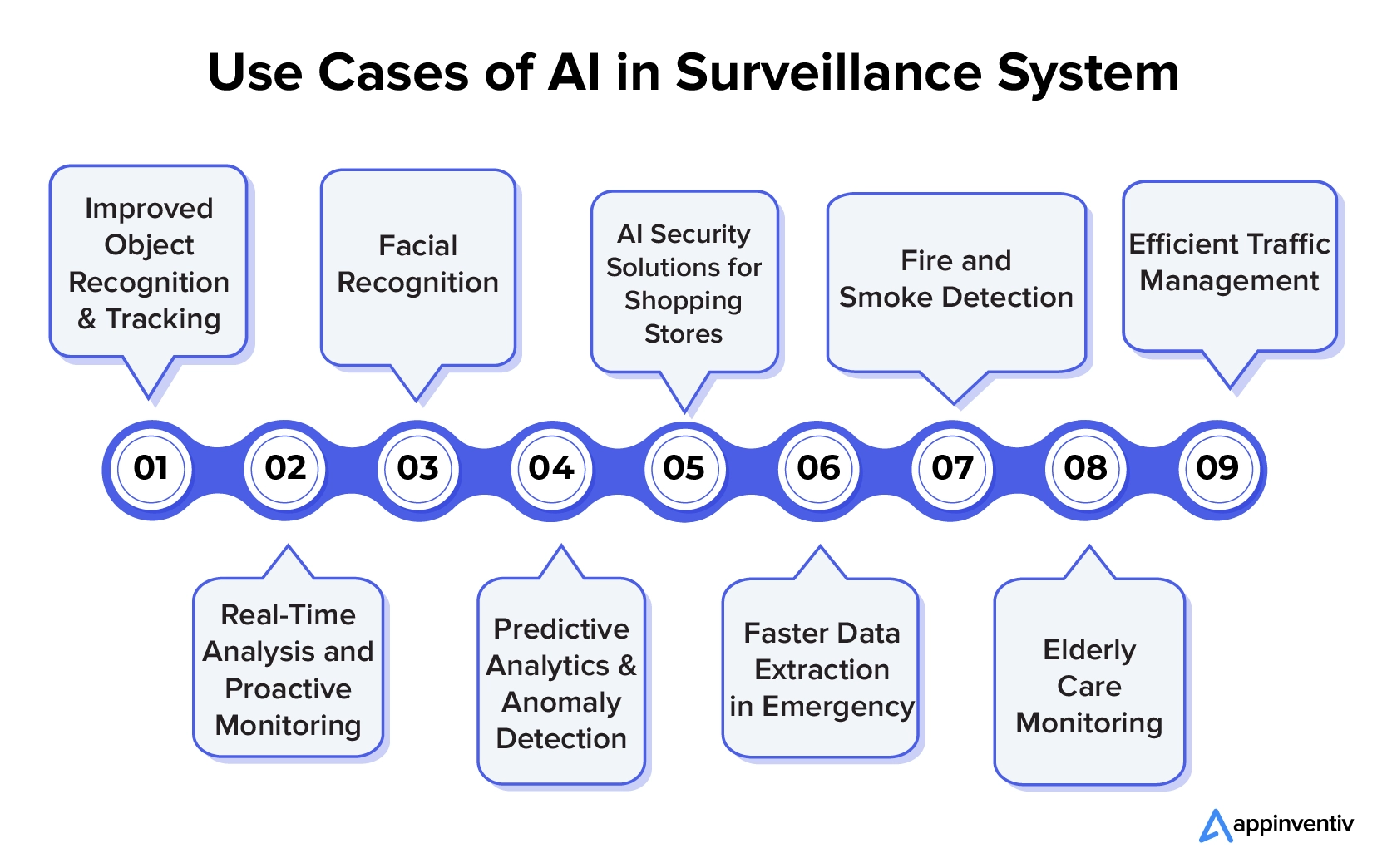The Surveillance State And The Rise Of AI Therapy

Table of Contents
Data Collection and Privacy Concerns in AI Therapy
AI therapy platforms, promising convenient and accessible mental healthcare, often collect vast amounts of sensitive personal data. Understanding the scope of this data collection and the associated privacy risks is paramount.
The Scope of Data Collected
The data collected by AI therapy apps and platforms can be surprisingly extensive, including:
- Voice recordings: Every session is recorded, capturing nuances of tone and emotion.
- Text messages: All communications between the user and the AI are stored.
- Behavioral patterns: Data on usage frequency, response times, and interaction patterns are tracked.
- Biometric data: If integrated with wearables, data like heart rate, sleep patterns, and activity levels might be collected.
This comprehensive data profile paints a detailed picture of an individual's mental state and personal life, raising significant privacy concerns.
Data Security and Breaches
The risk of data breaches in AI therapy platforms is substantial. Sensitive mental health information, if exposed, could lead to identity theft, discrimination, and severe emotional distress. Robust encryption and security protocols are essential to mitigate these risks. Considering data breaches in other sectors – from healthcare records to social media platforms – should underscore the severity of the potential consequences. We need rigorous security measures and regular audits to ensure data integrity and user protection.
Consent and Transparency
True informed consent is crucial. Users must receive clear and understandable information about:
- What data is collected.
- How this data is used.
- Who has access to this data.
Privacy policies should be easily accessible and written in plain language, avoiding legal jargon. The potential for manipulative data practices, where consent is obtained under the guise of therapeutic benefit, is also a significant concern and demands careful scrutiny.
Algorithmic Bias and Discrimination in AI Therapy
The algorithms powering AI therapy are not neutral; they reflect the biases present in the data used to train them. This can lead to significant ethical concerns and discriminatory outcomes.
Bias in Training Data
AI algorithms are trained on massive datasets. If these datasets contain existing societal biases (e.g., racial, gender, socioeconomic biases), the AI will inevitably perpetuate and potentially amplify these biases in its diagnoses and treatment recommendations. This can lead to misdiagnosis and inappropriate treatment for certain groups.
Lack of Diversity in Development Teams
A lack of diversity within the teams developing AI therapy tools further exacerbates this problem. Perspectives and experiences from underrepresented groups are crucial to mitigating bias, but often overlooked. Diverse development teams are essential for creating fairer and more equitable AI systems.
Potential for Discrimination
The consequences of algorithmic bias in AI therapy are severe. Biased algorithms may lead to:
- Misdiagnosis
- Inappropriate treatment
- Unequal access to care
These issues can disproportionately affect marginalized communities, widening existing health disparities.
The Role of Government Regulation and Oversight in AI Therapy
Effective government regulation is crucial for safeguarding users and ensuring responsible innovation in AI therapy.
The Need for Clear Regulations
Governments must establish clear and comprehensive regulations to:
- Protect user privacy
- Ensure the ethical development and deployment of AI therapy tools
- Hold developers accountable for biased algorithms or security breaches
These regulations should be adaptable to the rapidly changing technological landscape.
Balancing Innovation and Protection
Regulations need to strike a delicate balance between fostering innovation and protecting individual rights and freedoms. Overly restrictive regulations could stifle progress, while lax regulations could expose vulnerable individuals to significant risks.
International Collaboration
Given the global nature of data and AI development, international collaboration is essential to develop consistent standards and regulations for AI therapy across borders. Harmonizing regulations will prevent regulatory arbitrage and ensure consistent levels of user protection worldwide.
The Future of AI Therapy and Mitigating Surveillance Risks
Mitigating the surveillance risks inherent in AI therapy requires a proactive and multi-faceted approach.
Federated Learning and Differential Privacy
Technologies like federated learning and differential privacy offer promising solutions. Federated learning allows AI training on decentralized data without centralizing sensitive information, while differential privacy adds noise to the data to protect individual identities.
Explainable AI (XAI)
Developing "explainable AI" (XAI) is crucial. XAI systems provide transparency, allowing users to understand how the AI system arrives at its conclusions. This transparency fosters trust and accountability.
Human Oversight and Intervention
Human therapists must play a central role, overseeing and guiding the AI systems, ensuring responsible use and preventing harmful biases from impacting patient care. Human intervention remains crucial for ethical and effective AI therapy.
Conclusion
The rise of AI therapy presents a double-edged sword. While offering the potential for improved mental healthcare access and personalized treatment, it also raises profound concerns about the creation of a surveillance state. Addressing these ethical challenges requires a multi-faceted approach involving robust data protection regulations, algorithmic accountability, and the development of privacy-preserving AI techniques. The future of AI therapy hinges on our ability to strike a balance between innovation and the protection of individual rights. We must prioritize ethical considerations and responsible development to prevent the unintended consequences of an unchecked expansion of AI in mental health, ensuring that AI therapy benefits all, without sacrificing our privacy. Let's advocate for responsible innovation in AI therapy to prevent the creation of a surveillance state. The ethical development of AI-powered mental health tools is a shared responsibility, requiring collaboration between developers, regulators, and users alike.

Featured Posts
-
 Sounders Vs Earthquakes Your Guide To S Jv Sea 101
May 16, 2025
Sounders Vs Earthquakes Your Guide To S Jv Sea 101
May 16, 2025 -
 Goles Y Resumen Portugal Se Impone A Belgica 0 1
May 16, 2025
Goles Y Resumen Portugal Se Impone A Belgica 0 1
May 16, 2025 -
 Padres Add Former Ace Jake Peavy As Special Assistant To Ceo
May 16, 2025
Padres Add Former Ace Jake Peavy As Special Assistant To Ceo
May 16, 2025 -
 The Price Of Kid Cudis Personal Items Auction Results
May 16, 2025
The Price Of Kid Cudis Personal Items Auction Results
May 16, 2025 -
 Dodgers Muncy Tries Abandons Torpedo Bat Delivers Game Tying Double
May 16, 2025
Dodgers Muncy Tries Abandons Torpedo Bat Delivers Game Tying Double
May 16, 2025
